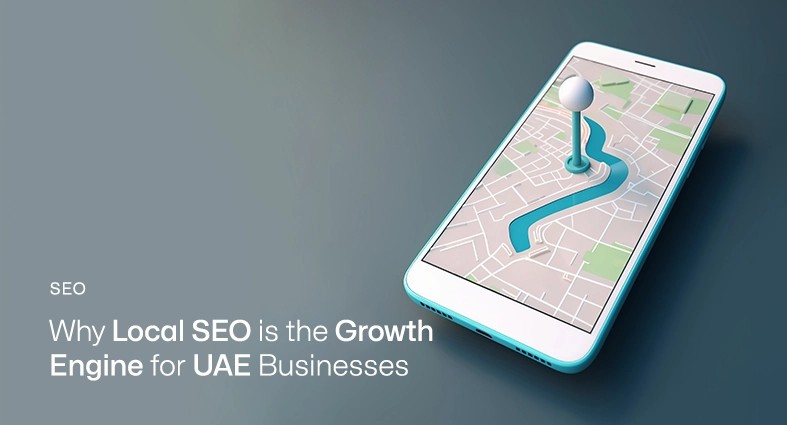The success of an e-commerce business largely depends on the platform it is built on. Choosing the right e-commerce platform can make a big difference in the performance, scalability, and profitability of your online store. With so many options available in the market, it can be overwhelming to pick the perfect e-commerce platform that suits your business needs. In this guide, we’ll take a closer look at the different types of e-commerce platforms, their features, and considerations, and provide you with a comprehensive comparison of the best e-commerce platforms to help you make an informed decision.
E-commerce Platform Comparison
E-commerce platforms are the backbone of any online store. They provide an online interface for businesses to sell their products or services. There are different types of e-commerce platforms available, including hosted, self-hosted, and open-source. Each type of platform has its own advantages and disadvantages, and you need to consider factors such as budget, technical expertise, customization, and scalability before choosing the right one for your business.
Hosted platforms
Hosted platforms are provided by third-party companies and are hosted on their servers. These platforms are easy to set up and use, and they offer a variety of features such as payment processing, inventory management, and shipping options. Hosted platforms also provide technical support and security features, making them a popular choice for small businesses and startups.
Self-hosted platforms
Self-hosted platforms require businesses to set up and manage their own server environment. These platforms are highly customizable and offer complete control over the online store. However, self-hosted platforms require technical expertise to set up and maintain, which can be a challenge for businesses without a dedicated IT team.
Open-source platforms
Open-source platforms are free to use and can be modified to fit the specific needs of a business. These platforms are highly customizable and offer complete control over the online store. However, open-source platforms require technical expertise to set up and maintain, which can be a challenge for businesses without a dedicated IT team.
When choosing an e-commerce platform, businesses should consider their budget, technical expertise, and the specific needs of their online store. Hosted platforms are a good choice for small businesses and startups, while self-hosted and open-source platforms are better suited for businesses with technical expertise and larger budgets.
E-commerce CMS
An E-commerce CMS (Content Management System) is a software application that allows businesses to manage their online store’s content and product catalog. It simplifies the management of an e-commerce store, by providing a user-friendly interface and intuitive tools for product listing, order processing, payment processing, and inventory management. Choosing an E-commerce CMS is an essential decision when it comes to building an online store. It is important to pick the one that can fit the needs and requirements of your business. When choosing an e-commerce CMS, it’s important to consider factors such as ease of use, customization options, pricing, and scalability.
Ease of use
Ease of use is a crucial factor when selecting an e-commerce CMS platform. It should have a simple and user-friendly interface, as well as easy-to-navigate menus and dashboards. This ensures that store owners and administrators can manage their stores easily and efficiently.
Customization
Customization options are another important feature to consider when choosing an e-commerce CMS platform. The platform should offer the ability to customize the storefront and back end, allowing businesses to create a unique brand identity and tailor the store to their specific needs.
Pricing
Pricing is also a major consideration when choosing an e-commerce CMS platform. Some platforms offer a one-time payment, while others charge monthly or annual fees. The pricing model should be affordable and scalable, depending on the size and needs of the business.
Security
Security is a crucial factor when selecting an e-commerce CMS platform. The platform should provide robust security features, such as SSL encryption, firewalls, and secure payment processing, to ensure the safety of customers’ personal and financial information.
E-commerce Software
E-commerce software is a suite of tools and applications that enable you to manage your online store and automate your business processes. Some of the popular e-commerce software solutions include PrestaShop, OpenCart, and Zen Cart. These platforms offer a range of features such as product management, order processing, payment integration, and marketing tools. When choosing e-commerce software, it’s important to consider the features that are critical to your business and ensure that the platform can integrate with your existing systems.
Flexibility: Retailers can choose from a range of pre-built templates and modules to customize their store’s appearance and functionality, while still retaining the core features of the platform. This means that businesses can tailor their online stores to suit their brand, products, and target audience.
Integrate with third-party tools and services: This can include payment gateways, shipping providers, marketing platforms, and customer relationship management (CRM) systems. By integrating with these tools, businesses can streamline their operations and improve the customer experience.
Scalability: Scalability is important for businesses that anticipate growth, as it ensures that the platform can handle increasing traffic and sales.
Security: Security features are also essential, particularly for platforms that handle sensitive customer data or financial transactions.
Best E-commerce Platforms
There is no one-size-fits-all solution when it comes to e-commerce platforms. The best e-commerce platform for your business depends on your specific needs and requirements. Some popular e-commerce platforms include Shopify, Magento, WooCommerce, and BigCommerce.
Shopify: Shopify is an all-in-one e-commerce platform that is suitable for small businesses. It is user-friendly and easy to set up, and it offers a range of features such as customizable templates, payment processing, and marketing tools.
Magento: Magento is an open-source e-commerce platform that is suitable for large businesses with complex requirements. It is highly customizable and flexible, and it offers a range of advanced features such as multi-store support and advanced search functionality.
WooCommerce: WooCommerce is a free e-commerce plugin for WordPress that is ideal for small businesses. It offers a range of customizable themes and features such as tax management and shipping options.
BigCommerce: BigCommerce is a hosted e-commerce platform that is ideal for medium to large businesses. It offers a range of features such as multi-channel selling, product reviews, and abandoned cart recovery.
E-commerce Platform Features
When selecting an e-commerce platform, it’s important to consider the features it offers. Different platforms offer different sets of features, so it’s important to evaluate the needs of your business and choose a platform that offers the features you require. Some key features to consider include product management, order management, payment processing, shipping management, and tax management. Additionally, consider features like customer management, marketing and SEO tools, and integrations with other software and services.
Product management: E-commerce platforms should provide efficient product management features that allow you to easily add, edit, and organize products, as well as create and manage product categories, attributes, and variations.
Order processing: E-commerce platforms should provide easy order management features that allow you to view, track, and process orders efficiently, as well as send notifications to customers about their orders.
Payment integration: E-commerce platforms should integrate with multiple payment gateways and provide secure payment options that allow customers to complete transactions seamlessly.
Shipping options: E-commerce platforms should offer various shipping options and allow you to set shipping rates, calculate shipping costs, and print shipping labels.
Security features: E-commerce platforms should provide robust security features that protect your online store from fraud, hacking, and data breaches, as well as ensure secure payment transactions and customer data protection.
Marketing tools: E-commerce platforms should offer various marketing tools such as SEO, social media integration, email marketing, and promotional features that allow you to attract and retain customers and boost sales.
Customization options: E-commerce platforms should offer customization options that allow you to customize the look and feel of your online store and create a unique brand identity that stands out from competitors.
Scalability: E-commerce platforms should offer scalability features that allow you to accommodate growth in sales and traffic, as well as add new products, features, and functionalities without affecting the performance of your online store.
Choosing the Right E-commerce Platform
Choosing the right e-commerce platform can be challenging, but it’s an important decision that can impact the success of your online business. Before selecting a platform, consider factors like the size and complexity of your business, your budget, and your growth plans. It’s also important to evaluate the features, integrations, and customer support offered by different platforms. Ultimately, choose a platform that aligns with your business goals and meets your specific needs.
Hosted platforms like Shopify and BigCommerce are ideal for small businesses that want a simple and easy-to-use solution, while self-hosted platforms like WooCommerce and Magento are more customizable and offer greater control over your online store. Open-source platforms like PrestaShop and OpenCart are free to use and highly customizable but require technical expertise to set up and manage.
E-commerce Platform Considerations
When selecting an e-commerce platform, there are several considerations to keep in mind. Firstly, consider the cost and pricing model of the platform, including any setup fees, transaction fees, and monthly fees. Additionally, evaluate the ease of use and customization options of the platform. Does it offer drag-and-drop customization or do you need to know coding to customize your store? Furthermore, consider the scalability and growth potential of the platform, as well as its integrations with other software and services. Lastly, evaluate the level of customer support offered by the platform, including resources like tutorials and customer service availability.
Conclusion
Selecting the right e-commerce platform is a critical decision that can make or break your online business. By considering the features, scalability, and flexibility of various platforms, as well as your specific business needs and goals, you can choose the perfect e-commerce platform that can help you drive sales, improve customer experience, and achieve online success. Remember to keep in mind the key considerations we’ve discussed in this guide to ensure that you make an informed decision.
At Pentagon, we specialize in providing top-notch e-commerce services in Abu Dhabi to help businesses succeed online. Whether you need help choosing the right platform, optimizing your online store for maximum conversions, or streamlining your shipping and fulfillment processes, our team of experts can help. Contact us today to learn more about how we can help take your e-commerce business to the next level.
services
Feel free to send us a message.
Please, share your thoughts, and let's chat over a cup of tea.



















